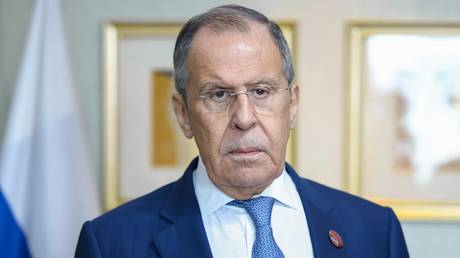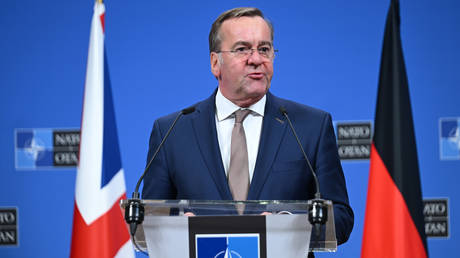
Experts discuss the goals and possible consequences of the upcoming Jeddah event
Brussels, Washington and Kiev are stepping up efforts to consolidate international support for a Ukrainian plan for hypothetical peace talks with Russia. Last Sunday it was announced that a major international meeting of around 30 states will be held in Jeddah this weekend, 5-6 August, to discuss the process.
In addition to countries such as Indonesia, Egypt, Mexico, Chile and Zambia, the largest states of the ‘global South’ – India and Brazil – are expected to attend.
The fact that this is the second such meeting on a Ukrainian settlement (the first meeting in a similar format was held in Copenhagen at the end of June) shows that there isn’t unconditional support for the Ukrainian plan in the international community, and Kiev will have to compromise. On the other hand, Russia was not invited. This means that a common international position could be formed without Moscow’s participation, and it could find itself confronted with the consequences.
Russian experts speculate on what this could mean.
Ivan Timofeev, Programme Director of the Valdai Club and Director General of the Russian International Affairs Council:
I am skeptical about this Saudi initiative, because any peace plan discussed without Russia is unlikely to be accepted by Russia. It seems that this is an attempt by the West to create a situation in which non-Western countries do not speak from a position of neutrality and impartiality, but instead directly, or indirectly, aligned with the West’s position.
If we look at the situation from the point of view of non-Western states, it could be a means for them to diversify their foreign policy status. They can show that they are playing from both Western and non-Western platforms, and that they still have room for maneuver.
The Ukrainian crisis was caused not only by Russian-Ukrainian relations and contradictions, but also by security contradictions between Moscow and the collective West. And without resolving these contradictions, it is very difficult to expect a sustainable solution.
But there are also a number of problems in Ukraine itself that are perceived critically in Russia. In particular, one of these now is the rights of Christians and the attempt to split the Orthodox Church, which is gaining momentum and is accompanied by the seizure of church property and the persecution of believers, and so on. Just last week the Russian Ministry of Foreign Affairs prepared a rather detailed report on this.
The problems associated with the Ukrainian crisis are not limited to the peaceful resolution of the conflict itself. It is a broader picture of relations between Russia and the West, the human rights situation in Ukraine itself and, in particular, the problems that Moscow is drawing attention to.
Dr Aleksey Gromyko, Director of the Institute of Europe of the Russian Academy of Sciences:
I assume that the format of the negotiations in Saudi Arabia did not envisage Russia’s participation or, accordingly, an invitation for Moscow.
The point is twofold: to work on consolidating the global South’s peacemaking efforts in relation to the Ukrainian crisis and, secondly, to work specifically with Ukraine and its sponsors. In principle, it is clear that Kiev, not Moscow, is fundamental to any ceasefire and eventual settlement.
Everyone knows that it was the Ukrainians who withdrew from the [peace]negotiations in April 2022, not the Russians. And since then, Russia has repeatedly signaled its openness to pragmatic negotiations, while Kiev has fantasized about the return of all its former territories, including Crimea.
If this work bears fruit, Russia could probably get involved later. But a condition for Saudi Arabia’s chances of success in this endeavor is ‘quiet diplomacy’ and complete confidentiality.
If it turns out that Kiev and the West are just using it for another political show, then there will be no benefit.
Political expert Andrey Dubnov:
The goal of the conference is not to formulate “agreements acceptable to all parties.” Russia has not been invited to this event, and this makes sense, because otherwise the meeting would have been doomed to failure. It is obvious that Moscow’s position has been articulated; the last time it was expressed was at the Russia-Africa summit.
Moscow’s main position is essentially an arrangement that can be called a ceasefire, based on Russia’s retention of the Ukrainian territories now organized as four Russian regions. It is difficult to imagine that Moscow is prepared to abandon this as its main negotiating position.
On the other hand, Kiev’s stance on peace is articulated as being possible only if Russia withdraws its troops to the 1991 borders. With such positions of the parties, a general meeting would be pointless.
What is the purpose of the summit in Saudi Arabia? Since this initiative comes mainly from Kiev and is backed by the US, it is now about consolidating the whole wider world – not just the West, but the big South, including the BRICS member countries (India, Brazil and South Africa). It is an attempt to find a consolidated expression of support for the Ukrainian peace plan. Within this “formula of support” there are some limits regarding the flexibility of Kiev’s negotiating position: under what conditions it is ready to give up its categorical demand to return to the 1991 borders and to compromise with Russia? Clarifying this kind of flexibility may be one of the ulterior goals of this conference.
But practice shows that such diplomatic conferences look first and foremost like big, big PR. Diplomacy needs silence and confidentiality. The Saudi initiative does not yet provide for this silence and confidentiality, so it is still more of a political meeting than a search for a diplomatic solution to the problem.
President Vladimir Zelensky’s peace plan will be at the center of the Saudi initiative. Within this framework, an attempt will be made to somehow find acceptable windows in which Kiev, I repeat, will be prepared to make further compromises with Moscow. But at the end of the day, everything will depend on the outcome of the military operations on the ground, which are being actively pursued.
No peace plan for Ukraine can become a reality without China’s participation. The meeting in Saudi Arabia could be a precursor to a financial and economic assistance plan to rebuild Ukraine. This is how the plan to help Afghanistan began at the Bonn conference many years ago.
Andrey Suzdaltsev, Political expert, Associate Professor of the Faculty of World Economy and World Politics of the Higher School of Economics:
The Saudi initiative is the second attempt at such negotiations to resolve the Ukrainian crisis. The first took place in the Danish capital, Copenhagen, in early summer. It did not go well, as the organizers were unable to attract high-level representatives, particularly from the BRICS countries; the talks were attended by deputy foreign ministers and others.
Now they want a conference with higher-level representation, especially among the Indian representatives. That is why they chose Saudi Arabia, which has strong cooperation with New Delhi. They are using the existing experience of these big countries.
All this is happening because it has now been discovered that there are several factions of power on the planet and that the world is multipolar. The unipolar world that existed before was somewhat incomplete, but it still existed. Now, however, it has begun to fall apart.
A vivid example of this is the events of 2008, the Ossetian-Georgian war, where the West intervened when it was too late. French President Nicolas Sarkozy arrived, the situation was stopped, and Russia was not even seriously sanctioned.
In 2014, when Crimea returned to Russia, the West could do nothing about it and showed that the unipolar world was beginning to fail. The system started to collapse.
When the system of international relations collapses, it manifests itself in three aspects. The first aspect is the loss of various contacts, traditions of contacts, and traditions of discussions at the expert and diplomatic levels. This can be seen not only in relations between Russia and the West, but also those between China and the US with regard to Taiwan, and in the fraught relations of most African countries with the US and Western Europe. Contacts and relations built up over decades have begun to disintegrate.
The second aspect is that international organizations are becoming dysfunctional, losing respect, and being ignored. In the 1950s and 1960s, United Nations decisions were viewed almost as law in a bipolar world. However, when the world became unipolar, the largest international organizations became unnecessary as Washington made all the decisions.
The third aspect is that international law is canceled. Many agreements lose their force, though not all.
These three aspects show that the world system is changing. The US and the European Union want to stop this process. The Russian military operation in Ukraine was the turning point. The unipolar world has to make the other poles of global power – including China and India – support the West and stand firmly on the Western positions and on the side of Ukraine. There is no equality in this. The proposed negotiations are a conversation in the format of the traditional unipolar world, which can only offer coalitions, and of the feudal vassal type.
This conference is being held to force Africa and India to side with the West against Russia.




